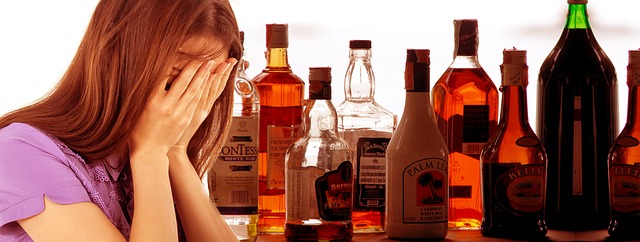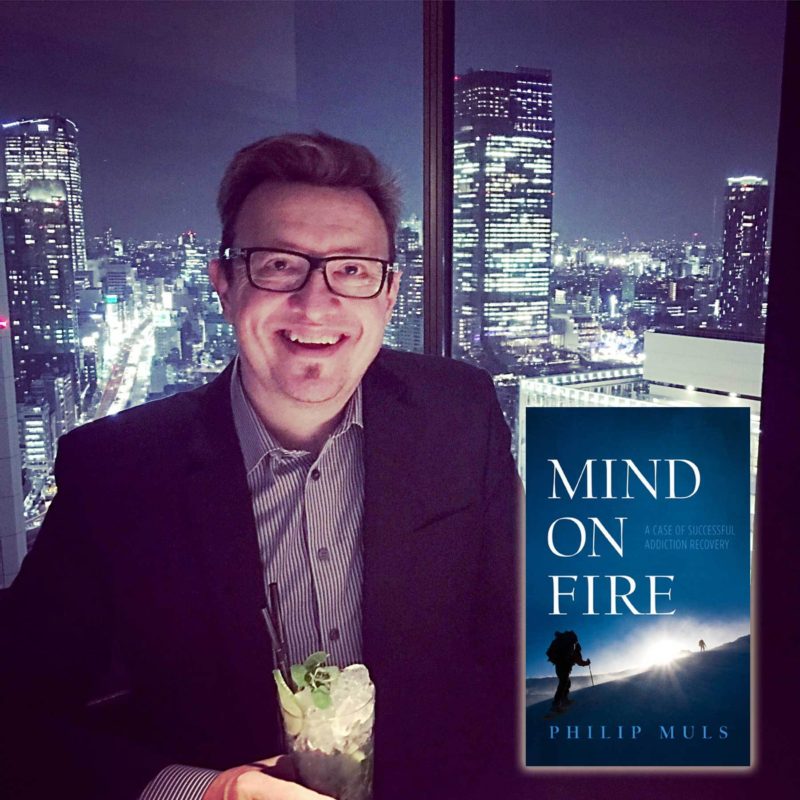Understanding the Alcoholic in Your Life…and How To Deal
If you are in addiction or living with someone with addiction, it is time to gain an understanding of the alcoholic in your life. People have all types of conceptions and misconceptions about the condition of alcoholism. I have known some to simplify it and say that if you never take your first drink, you will never have the chance to become an alcoholic. Life is never that simple. I am Philip Muls, author of Mind on Fire, as a person that spent over ten years of my life as a functional alcoholic, I would like to share some things with you that may help you to understand the complex nature of what you are dealing with.
There are people who will never be an alcoholic because their brain automatically tells them when to stop when they have consumed an amount of alcohol. And then there are people like me who cannot stop once they start drinking.
Alcoholics have impaired control over drinking that leads to loss of control over one’s life. It is as simple as that. I doubt that ‘never take your first drink’ is good advice. Better advice would be to accept the fact that you will never be able to drink again once it has been established you are an alcoholic. There is no such thing as controlled drinking for people who are addicts.
In the US, one out of 4 adults drinks more than five alcoholic drinks in one day. This goes to show that people either do not know or do not care that the more a person drinks, the more he or she becomes alcohol tolerant. This can in its turn lead to greater alcohol consumption. Then, if not dealt with it can later lead to alcoholism.
Alcoholism is More Than a Habit
Alcoholism is more than a physical addicting habit. Alcoholism can be both a habitual (psychological) and a chemical (physical) addiction. Many alcoholics drink alcohol to improve their moods and restore their spirits. However, heavy alcohol consumption can deplete the stock of serotonin and dopamine in your brain, two neurotransmitters that produce feelings such as happiness and a sense of calm. Even so, addicts continue to drink in the belief that it can reinstate their sense of well-being. It cannot!
Alcohol causes psychological dependence by affecting the central nervous system. When a person suddenly stops drinking, the nervous system gets agitated which can lead to high blood pressure and palpitations. An alcoholic will try to prevent these withdrawal symptoms from occurring by resuming his drinking. That is what I describe in the chapter Rock-Bottom in Mind on Fire, when I am forced to go down to the kitchen at 3 AM to get a drink.
Some people become dependent on drinking and need the alcohol every day. Psychological dependence is when the person is drinking in order to function “normally” and feel good. Physical dependence is when the person’s body has adapted to chronic use of the booze, and would suffer physical symptoms when he or she stopped drinking. Chronic alcoholism occurs when there are both physical and psychological addictions. Alcoholism is treatable and controllable, but not curable. Once an addict, always an addict.
Help For the Alcoholic In Your Life
From my perspective, in order to recover fully, you must be brutally honest with yourself. Denial will only delay your recovery. Be humble and recognize that you are powerless when it comes to alcohol. And accept that you will never drink again.
There are several pathways that can help alcoholics. There are AA programs, therapy, as well as mindfulness and meditation programs. I went to AA meetings the first 6 months into recovery, and they helped me bridge that difficult period after rehab. But after 6 months, I preferred to continue with individual therapy twice a week. Obviously I respect people who swear by the twelve-step method. I am just saying that for me, it was a bit too indoctrinating and dogmatic.
I strongly believe that mindfulness and meditation are very helpful on the road to recovery. Many addicts tend to over-think things. Not identifying with your own mind is key in order to let go. Mindfulness and meditation can let you ‘watch the thinker’ in yourself.
Once you have successfully engaged with a recovery pathway, it is important to be vigilant. My book Mind on Fire describes the first 18 months of sobriety because that is how long it takes to re-integrate properly into society after rehab and to learn how to do the normal things in life without alcohol. Your brain gets reprogrammed in those 18 months. But indeed, recovery never stops, you should stay vigilant at all times because temptation is around every corner
I would like to end this article on a positive note. There is hope for recovery for alcoholics. I want to say to everyone who wants to quit drinking, please give yourself the gift of acceptance. Stop resisting the fact that you will never drink again. Once that battle is won, recovery can start and you can become happy again by finding your true self.
Sobriety and recovery have saved my marriage; have given me back the respect of my children and friends. And by writing this book, I get to help other people in the same situation, which is extremely rewarding. I hope that many people will read the book and pass on the knowledge that there is life in recovery.
Philip Muls the author of Mind on Fire is a senior business executive in a global corporation, who has been traveling on the job through Asia for the last twenty-plus years. He holds an MBA from Leuven University and has been granted various sales and management awards in the software industry. After quitting alcohol in his mid-forties, Philip started to research and experiment with a variety of recovery treatments on the level of mind and body and also on the level of his deeper self. This book blends his amazing travel stories with an authentic account of how alcohol affects the brain and how recovery from addiction can be like navigating a minefield of existential fears and obsolete beliefs. When he is not off traveling in China or India, Philip lives with his wife Natja and his two children Monika and Alexander in Grimbergen, Belgium. You can find Mind on Fire on Amazon.com or anywhere books are sold. You many also contact Philip Muls at www.philipmulsauthor.com




